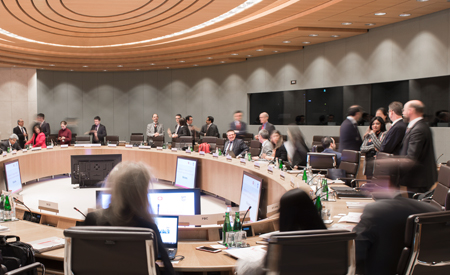The Basel Process - overview
The Basel Process refers to the way in which the BIS promotes international cooperation among monetary authorities and financial supervisory officials.
The BIS is a forum for discussion and a platform for cooperation among central banks* and other financial authorities in the pursuit of monetary and financial stability.
This international cooperation is known as the Basel Process. It revolves around two main axes:
- regular high-level meetings of senior monetary and financial officials
- the BIS's support for and collaboration with international groups pursuing financial stability
The outcomes of this process are visible to the public in the form of committee reports analysing specific topics and internationally agreed standards. International agreement is the precondition for globally consistent standards produced by the standard-setting committees. But it does not substitute for national legislation. In order to become binding, the agreements reached in Basel have to be approved and implemented at the national level, following due regulatory and legislative processes in each individual jurisdiction.
The Financial Stability Institute assists central banks and financial regulatory and supervisory authorities worldwide in strengthening their financial systems by supporting the implementation of global regulatory standards and sound supervisory practices. It does so through policy work, knowledge-sharing activities and capacity-building.
* The access of the Central Bank of the Russian Federation to all BIS services, meetings and other BIS activities has been suspended





